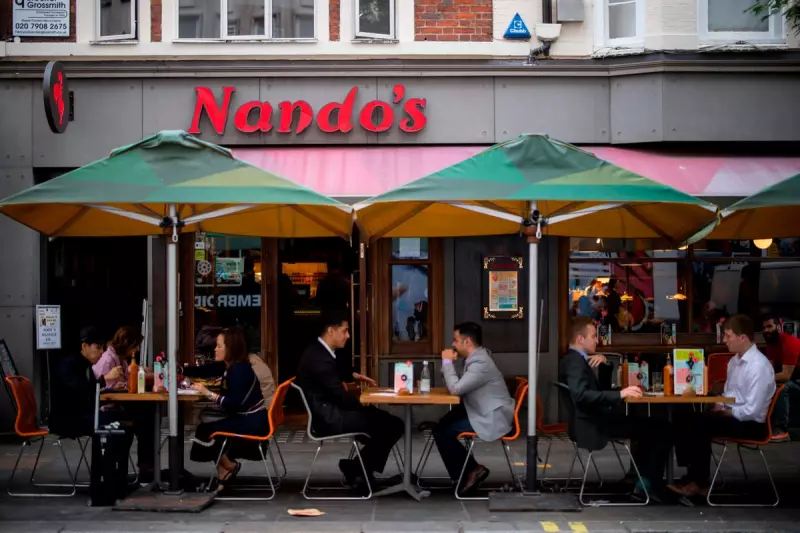
The popular restaurant chain Nando's has found itself in the crosshairs of government health officials over the staggering sugar content in the Coca-Cola it serves to customers. As part of a renewed offensive against Britain's obesity crisis, ministers are targeting establishments that continue to offer high-sugar soft drinks.
The Sweet Truth Behind the Menu
Health campaigners have revealed that a standard 500ml Coca-Cola served at Nando's contains approximately 13 teaspoons of sugar – dramatically exceeding the recommended daily intake for adults in a single beverage. This startling revelation comes as the government intensifies its efforts to encourage healthier eating habits across the nation.
Government Takes Aim at Restaurant Sugar
Unlike supermarkets and convenience stores, which now face the sugar tax officially known as the Soft Drinks Industry Levy, restaurants have largely escaped direct financial penalties for serving high-sugar beverages. This regulatory gap has allowed chains like Nando's to continue serving drinks that would otherwise incur substantial taxes in retail settings.
A government spokesperson confirmed that ministers are actively considering extending sugar reduction targets to include the hospitality sector, potentially forcing chains to reformulate their drink offerings or face consequences.
Public Health at Stake
Medical experts have expressed serious concerns about the health implications of such high-sugar offerings. Regular consumption of sugar-sweetened beverages has been directly linked to:
- Increased risk of type 2 diabetes
- Higher incidence of dental cavities and decay
- Growing childhood obesity rates
- Elevated blood pressure and heart disease risk
With obesity-related conditions placing enormous strain on the NHS, public health officials argue that addressing sugar consumption in restaurants represents a crucial frontline in the battle against preventable diseases.
Industry Response and Alternatives
While Nando's continues to serve the full-sugar version of Coca-Cola, the chain does offer sugar-free alternatives including Diet Coke and Coke Zero. Health advocates suggest that making these options the default or more prominently promoting them could significantly reduce sugar consumption among patrons.
The restaurant industry faces increasing pressure to take voluntary action before potential government mandates force changes. Several other major chains have already begun reducing sugar content in their beverages or prominently displaying calorie information to help customers make informed choices.
As the obesity strategy evolves, the spotlight on restaurant sugar content shows no signs of dimming, leaving chains like Nando's with difficult decisions about how to balance customer preferences with public health responsibilities.





